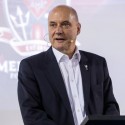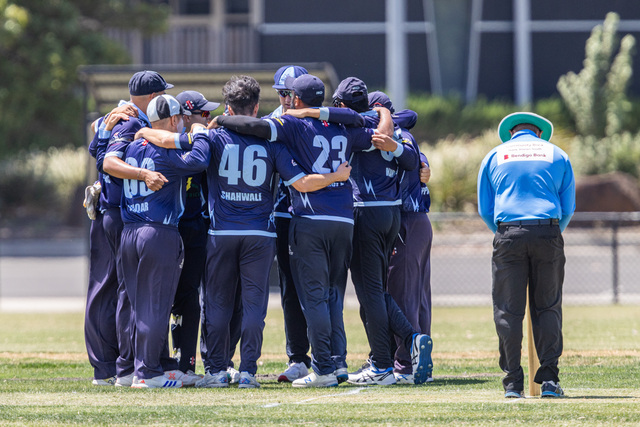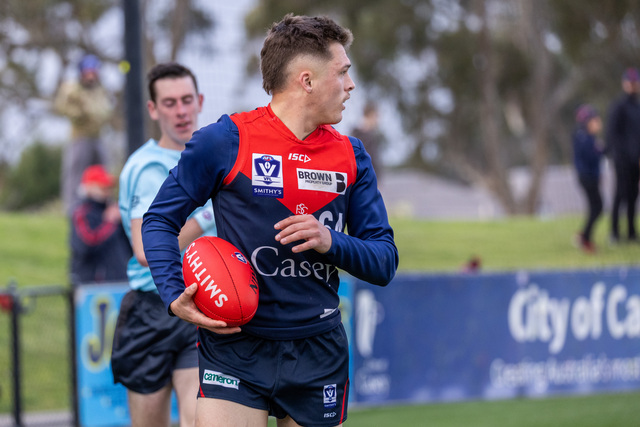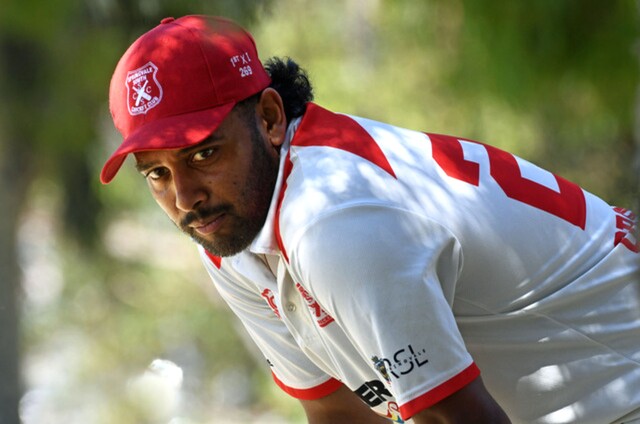By CASEY NEILL
MELBOURNE Football Club CEO Peter Jackson has said that governance not drugs was behind Essendon’s downfall.
“I don’t think Essendon ever intended to cheat,” he said.
Mr Jackson told the Casey Cardinia Business Breakfast at Cranbourne Racing Centre on Wednesday 9 September that Hawthorn had put structures in place to bring out the best in coach Alastair Clarkson – and curtail his less desirable qualities.
“Essendon didn’t do that because people were in awe of the individual,” he said.
Mr Jackson grew up in Adelaide’s western suburbs – which he likened to Melbourne’s west – and has a bachelor of commerce from Adelaide University.
He has been the Essendon Football Club CEO and managing director, the AFL Victoria and AFL SportsReady chairman, and a leadership consultant.
He spent time in mining and manufacturing and is the chairman of global architectural practice The Buchan Group Melbourne.
Mr Jackson’s career path changed in 1996 when Essendon Football Club made the “progressive decision” to turn professional.
The Bombers brought him on board and cleared out the former players who’d hung around in roles they were unqualified for.
“I was fairly bored where I was, doing what I was doing, and I loved footy,” he said.
“What I learnt in football has taught me everything I think I know about leadership.
“Senior coaching is the purest form of leadership I’ve ever seen.”
Mr Jackson said senior coaches had to galvanise their 44 players whose only thing in common was their ability to play football at the highest level.
“Some of them don’t even have that,” he said.
“There’s every conceivable background.”
He said leadership was a buzz word often interchanged with ‘management’.
“I know they are very, very different,” he said.
Mr Jackson said management was about such things as processes, budgets and logistics.
“Leadership is about getting the best out of people,” he said.
“You can be a good manager but a lousy leader.
“But to be a good leader, you have to be a good manager.
“If you can’t get things done you’ve got no credibility.”
He said leadership was taking people to places they didn’t know they wanted to go.
“You cannot tell them to come along with you,” he said.
“Telling them is management and it assumes they’ll do as they’re told.”
He said employees wanted to know what they had to do, but also why and how.
“All the coaches that tell you ‘what’ have been fired. Or they’ve got too old and died,” he said.
He said the average footballer had eight years on the field and expected their coach and club to get the very best out of them.
“If I can’t make it with you and your club … I’m going to stand up and go,” he said.
“It’s incumbent on you to create the right culture.
“You get the culture you deserve and your culture gets you the results you deserve.”
Mr Jackson said employees didn’t come to work to be managed, or even for a salary.
“People come to work for recognition, for respect, for camaraderie, for a sense of belonging, to learn and to grow,” he said.
He pointed out that Melbourne’s 44 players shared in the club’s $10 million salary cap.
“The same amount of money as the 44 players on Hawthorn’s list,” he said.
“They will stay at that place for a lower salary than they can get elsewhere.
“They’re not playing for a salary. They’re playing for an achievement.”
Mr Jackson said culture was more important in fostering on-field success than pouring in money.
“If the culture and governance isn’t right, the performance won’t follow,” he said.
“If we get the culture right, the results will take care of themselves.”
Megan Quinn from Net-A-Porter will speak at the November Casey Cardinia Business Breakfast.
Visit www.caseycardinia.com.au for more information.

















